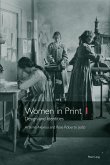On the death of Elizabeth I, Anna of Denmark, wife to James VI and I, became the first queen consort of both England and Scotland. She offered her subjects north and south of the border an ideal of consortship: an attractive, fecund woman with a flair for display.
Yet, history has been far from kind to the first British consort.
Anna has been castigated as frivolous, vain, stupid, and more interested in dancing and pleasure than politics.
This is unfair. As scholarship has recently begun to show, the queen was a determined, intelligent woman whose contributions to the cultural lives of her kingdoms was to prove of major importance in late-Renaissance Britain.
This study aims to contextualise Anna not as a woman of minor significance in relation to the queens regnant of the sixteenth century, but as an inheritor of the bloody legacies of previous consorts north and south of the border.
What emerges is a woman of wit, intelligence, and taste, who exploited political faction to her benefit and that of her children; who was canny enough to manage a slippery husband and sovereign; who sought creative avenues to mitigate the increasingly troublesome issue of her foreignness; and who provided the public face of monarchy in the teeth of an errant king who placed little stock in public opinion.
Yet, history has been far from kind to the first British consort.
Anna has been castigated as frivolous, vain, stupid, and more interested in dancing and pleasure than politics.
This is unfair. As scholarship has recently begun to show, the queen was a determined, intelligent woman whose contributions to the cultural lives of her kingdoms was to prove of major importance in late-Renaissance Britain.
This study aims to contextualise Anna not as a woman of minor significance in relation to the queens regnant of the sixteenth century, but as an inheritor of the bloody legacies of previous consorts north and south of the border.
What emerges is a woman of wit, intelligence, and taste, who exploited political faction to her benefit and that of her children; who was canny enough to manage a slippery husband and sovereign; who sought creative avenues to mitigate the increasingly troublesome issue of her foreignness; and who provided the public face of monarchy in the teeth of an errant king who placed little stock in public opinion.
Dieser Download kann aus rechtlichen Gründen nur mit Rechnungsadresse in A, D ausgeliefert werden.









